9 Reasons Urban Dwellers Should Consider Small-Batch Brewing
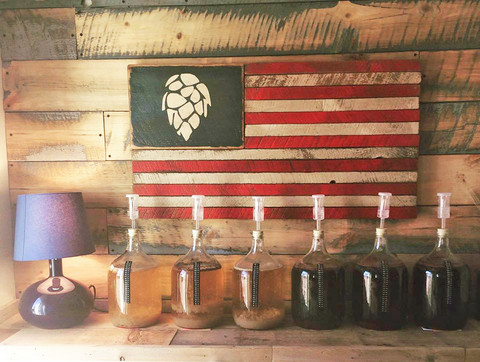 I brewed my first batch of beer in my tiny Syracuse apartment while the snow piled up outside. From grain to bottle, it was a difficult but thrilling process. I still remember the feeling of pure joy when I cracked open the first bottle, and—lo and behold—it tasted like beer. I was hooked. Soon enough, I was confronted with the difficult decision of whether or not to lug my brewing equipment to my new Brooklyn studio apartment where space would surely be a squeeze.
I brewed my first batch of beer in my tiny Syracuse apartment while the snow piled up outside. From grain to bottle, it was a difficult but thrilling process. I still remember the feeling of pure joy when I cracked open the first bottle, and—lo and behold—it tasted like beer. I was hooked. Soon enough, I was confronted with the difficult decision of whether or not to lug my brewing equipment to my new Brooklyn studio apartment where space would surely be a squeeze.
I started, as most folks do, with a run-of-the-mill 5-gallon beer making kit purchased online. Over time, though, I began to realize how unwieldy and awkward the brewing process seemed at that 5 gallon scale. I began to wonder what would happen if I scaled down the process and tackled brewing at the 1-gallon scale. Would it be faster? Cheaper, possibly? Certainly it would be smaller and more manageable. As a new urban dweller, this was an idea I could get behind.Several years and more than several brews later, I’m happy to say now that we have our workshop, and I’ve got a lot more room to brew. But I've stuck with small-batch brewing for a lot of reasons that weren't immediately obvious at the outset.
Some people are turned off by the idea of small-batch brewing (one to two gallon batches) because they like to produce beer in larger volumes (five to ten gallon batches), and that’s okay—I like beer as much as the next guy, and having a large supply of it is (almost) never a bad thing. There's also a lot of comfort in that many of the homebrewing recipes and kits available cater to the familiar 5-gallon scale. However, there are a number of distinct advantages to small-batch brewing—especially for people living in small spaces—that I’ve come to realize over the years. In this post, I’ll share a few of them.
1. Your Significant Other Won't Lose a Closet
A 5-gallon batch of beer will fill about 50 12-ounce bottles. That’s a lot of beer to store in your living space—even if you are drinking a few a day. And don't forget the pair of 5-gallon buckets you'll need to stash somewhere. At the 1-gallon scale, a single batch of home brew can fit in your fridge (easy access!), and your equipment can sit right on your countertop. Sourcing and storing ingredients is a breeze as well, as most 1-gallon recipes use between 2 and 3 pounds of grain, significantly less than their 5-gallon counterparts. Trust me, your significant other will thank you for the extra space!
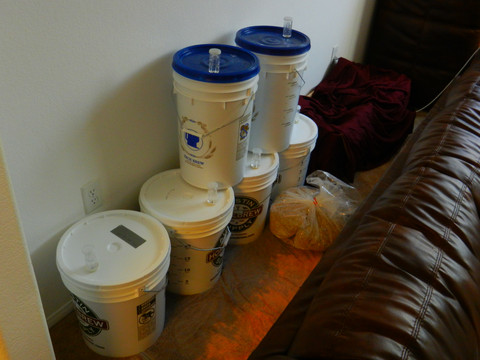
2. The Cost to Produce Won't Break the Bank
Of course, there’s something to be said for the economies of scale you can experience when buying ingredients in bulk. But as mentioned above, urban dwellers don’t always have the luxury of extra space. And when making only one to two gallon batches, picking up everything you need at the homebrewing supply store won’t break the bank. If you have a favorite recipe, you can scale it down proportionately.
3. You'll Avoid Some of the Risk
For any homebrewer who’s learned a lesson in sanitation the hard way or woke up in the middle of the night to a symphony of bottle bombs exploding, you know it’s a total bummer. But as you scale down the cost of your brew, a bad batch poses less risk to your bottom line. This can be especially beneficial if you’re brewing with some expensive ingredients.
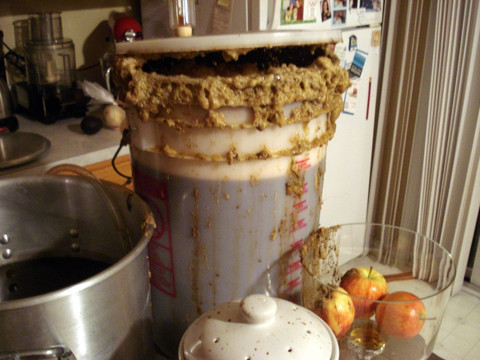
4. You'll Brew More Often and Learn Faster
For most homebrewers, it doesn’t always make sense to brew a five or ten gallon batch every two weeks, especially when a brew can consume the better part of a day. But with small batch brewing if you've got the funds, it's pretty easy to routinely pump out a gallon or two at a time. A shorter process means you're likely to brew more often. Home brewing is so much of a learning-by-doing hobby, that this type of iterative process can elevate your skills at a much faster rate. Testing out variations on the same recipe between small batches is a great way to perfect your beer!
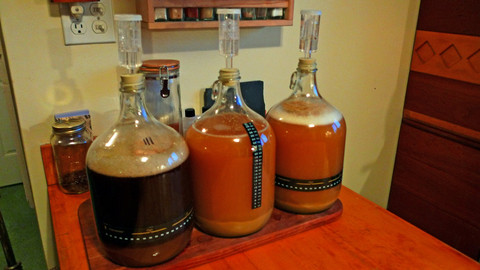
5. A Hot Plate Could Provide the Heat You Need
Brewing a five or ten gallon batch requires a lot of water and considerable heat to achieve the right boil. This is why you might have seen some "homebrewing porn" pictures with an awesome garage setup that includes propane burners. We love those, but that's not practical in a small apartment, especially if you're limited to an "apartment-sized" appliance. With small batch brewing, you can brew quickly and easily with as little as a hot plate.
6. You Can Clock a Brew In Two Hours Or Less
Just about anyone who's brewed a 5+ gallon batch of beer has spent a long night patiently waiting for water to boil, and after brewing, waiting for the beer to cool to the proper temperature. Although those can be among the most rewarding nights for some, a quicker process is a great bonus for most small-batch brewers, and helps us squeeze in an evening of brewing beer even during a busy week. With a brewing process which can clock in at under two hours from start to finish, brewing small has convenience on its side. You'll need little more than a stirring spoon and your arm to craft a tasty batch of beer. In contrast, the logistical "bigness" of a 10-gallon batch can be a big turnoff for some—lugging hefty pots of water and grain hither and yon is a daunting task.
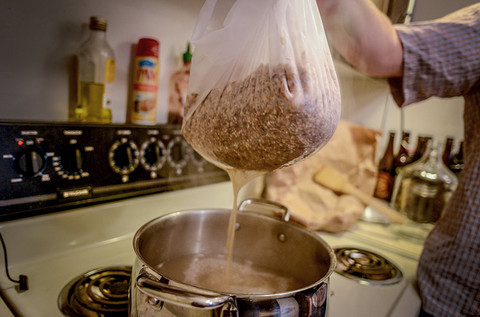
7. It's a Perfect Recipe For Experimentation
The size of your batch does not have to limit the amount of creativity you put into each one. However, the frequency, cost and required storage can absolutely be limiting factors. Brewing small means you're free to experiment with a variety of styles and recipes without going "all-in." With such a quick turnover between batches, you can always keep your fridge stocked with new and interesting choices. Suddenly you can lager your beer without a dedicated fridge, or test out some new and different ingredients you've had your eye on. Oyster stout, anyone?
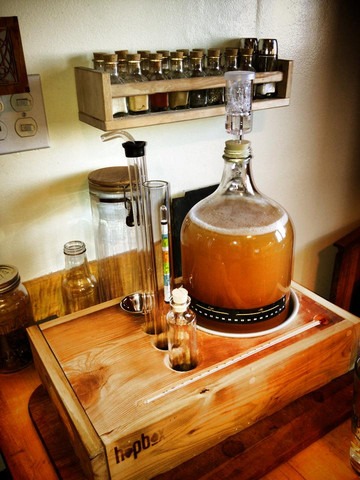
8. Cleaning Up Is a Cinch
With larger batch brewing, you can easily generate 15 to 30 pounds of wet grain. Managing that waste is a challenge for home brewers living in a city apartment--especially when taking out the trash is already a hassle. Wouldn't you rather deal with 3-5 pounds of waste instead? Better yet, with even a little culinary flair, you can turn your spent grain into all manner of delectable treats!
9. You're Less Likely to Burn Something
Not that you hear about too many homebrewing-related house fires or injuries, it's worth mentioning that brewing in smaller batches gives you a bit more control over what's happening. Coupled with the fact that it's a shorter process, better control more often than not results in a safer brew. Handling big volumes of heated water can result in burns, and over time, large 5-gallon glass carboys can weaken and be quite dangerous when they shatter—not to mention the loss of an entire batch of beer.
Is Small-Batch Brewing For You?
I just want to reiterate that this article is not meant to say brewing smaller volumes is better than brewing five or ten gallon batches. Fact of the matter is, everyone is different, and if you have the space and time, brewing five or more gallons is a lot of fun. I've grown to love small-batch brewing mostly as a result of my circumstances, but I think I'm a more innovative, proficient homebrewer because of it. Above all, the most important thing isn't the scale at which you brew—it's that you have fun, and hopefully make some great beer in the process.
I'm interested to hear what you think. Please feel free to share your thoughts in the comments section below.

